Birth
440 BCE
Death
Unknown
Diotima was purportedly an Ancient Greek philosopher and priestess who appears in Plato's "Symposium," where she teaches Socrates about the true Eros in a conversation about love.
Her historical existence is part of an on-going controversy, with many believing her to be a fictitious figure created by Plato, potentially as a stand-in for the philosopher Aspasia.
Personal Information
Name(s)
Diotima
Date and place of birth
Mantinea; active c. 440 BCE
Date and place of death
Unknown
Family
Unknown
Marriage and Family Life
Unknown
Education
Plato calls her “wise” in his Symposium, but we have no concrete sense of her education.
Religion
Plato hints that Diotima was a powerful priestess, for she forestalled the plague in Athens for 10 years due to her prayers.
Transformation(s)
Unknown
Contemporaneous Network(s)
The only trace of a network lies in the fact that Plato implies that Diotima is a priestess—in particular, many scholars argue, of the Eleusinian mysteries. This means that she would have been part of a powerful group of women with sacred knowledge of rituals and traditions.
The closest link to Diotima is Aspasia, a woman whose historical existence is now, for the most part, assumed. In his Menexenus, Socrates attributes a funeral oration to Aspasia and claims that she schooled him in the art of rhetoric; thus, like Diotima, she serves as a teacher figure for the male philosopher.
Referenced in other female biographies. Likely Aspasia.
less
Significance
Works/Agency
The only independent record of her is in Plato’s Symposium, when Socrates reports what she has taught him about love to the rest of the (entirely male) drinking party guests.
Contemporaneous Identifications
She is mostly treated in the disciplines of Classics and Ancient Philosophy.
Reputation
Diotima’s historical existence cannot be conclusively proven, but in antiquity there is no indication in sources after Plato (such as Lucian) that she must have been invented by Plato. When Plato’s texts were mostly lost to the Latin West, her name also disappeared; for example, she does not appear in Boccaccio’s otherwise comprehensive On Famous Women (1374). In the Renaissance, when Plato’s entire corpus was reintroduced to the West by Eastern scholars and translated into Latin by the talented humanist Marsilio Ficino, Diotima reappeared as a figure of immense interest. Her name was invoked by men and women as an exemplar of ancient female learning and wisdom, appearing in philosophical dialogues, poetry, and textual commentaries. In the early modern period, she was cited in catalogues of historical women as proof that women should have access to education. In the late 18th and early 19th centuries, Diotima began to be mythologized by male scholars and abstracted from historical reality. When the discipline of Classics was codified in the European university in the 19th century, early philologists and commentators on Plato took it for granted in their scholarship that Diotima existed only as a figment of Plato’s imagination. This interpretation largely persists today, with a few notable exceptions. Another popular reading of Diotima is that she is a fictive stand-in for a real ancient Greek female philosopher, Aspasia, whom Plato mentions most notably in his Menexenus.
Diotima’s account of love in Symposium is significant, as hers represents the only female voice in the entire dialogue. It is noteworthy that the other men in the room do not discredit what Socrates says on the grounds that he has reported the teachings of a woman. In her exchange with Socrates, Diotima transforms the conventional language of female fertility and childbearing into philosophical creativity and legacy. Combined with the de-gendering of the philosopher (a lover of wisdom can be a man or a woman) in the Republic, and the examples of female lovers in the Symposium, Plato opens up a space for women in philosophy.
The most recent scholarship on Diotima can be found in Armand D’Angour’s Socrates in Love (2019), which treats Socrates’s relationship with Aspasia and takes seriously the question of whether Diotima is a fictional stand-in for the historical Aspasia.
Legacy and Influence
An online database devoted to “materials for the study of women and gender in ancient Greece” is named for Diotima.
less
Controversies
Controversy
The most significant point of controversy and debate is the question of whether Diotima is a historical person or was invented by Plato. No other character in a Platonic dialogue has been the subject of such intense skepticism. Ancient sources after Plato do not raise the issue.
This scholar’s own research (in my MA thesis and in forthcoming articles) seeks to debunk an influential scholarly claim that an Italian Renaissance humanist is responsible for first adopting the interpretive stance that Diotima must be fictional because a woman could not teach a great philosopher like Socrates. I have shown that the humanist in question does not, in fact, make such a misogynist claim, and that this ad hominem argument actually appears earlier, in a debate between two Byzantine scholars, as to whether Plato or Aristotle was the superior philosopher. As far as I can tell, the question of her historicity begins in earnest with the rise of the European university in the 19th century, as the discipline of classical philology emerges and male scholars begin to write philosophical commentaries. Even then, however, the arguments presented are not explicitly misogynist, even if the underlying motivation for questioning her existence betrays a misogynist attitude. For the most part, contemporary Classics scholarship takes for granted that she was a character invented by Plato, and possible reasons given for this invention differ.
Feminism/Social Activism
Diotima became a symbol of feminist resistance in Italy in the 1980s. In 1987, three Veronese philosophers published a volume called Diotima: Il pensiero della differenza sessuale (The Thought of Sexual Difference), and shortly thereafter, a volume called Il Filo di Arianna: Letture della differenza sessuale (Ariadne's Thread: Readings on Sexual Difference). These thinkers labeled themselves under the collective Gruppo di filosofia Diotima—the Diotima Group. This led to what Renate Hub has called “the Diotima phenomenon,” which swept across Italy, in particular.
less
Bibliography
Primary (selected):
Nothing outside of Plato’s Symposium
Issues with the sources
The most significant issue is that we have no information about Diotima outside of Plato’s text.
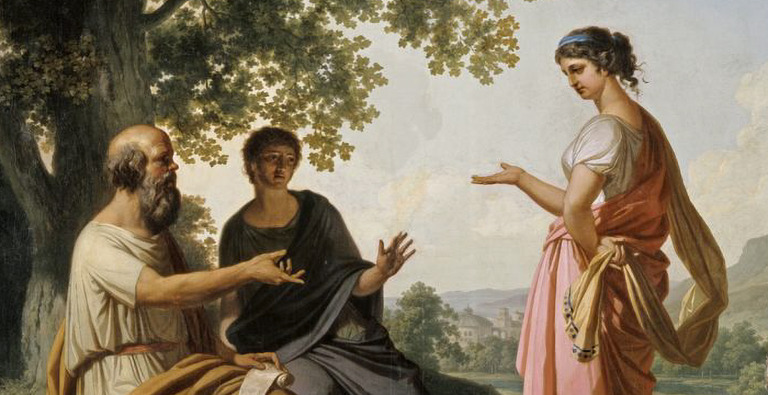
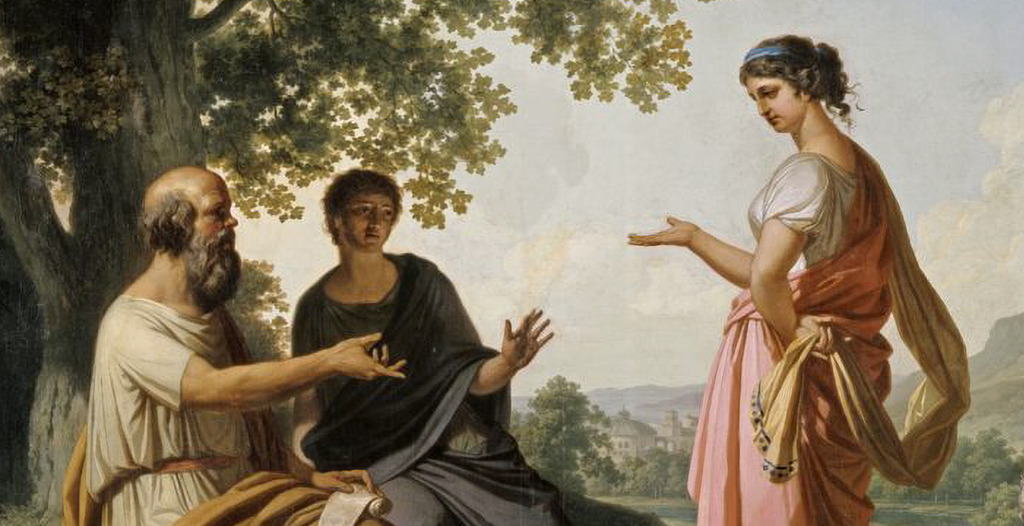
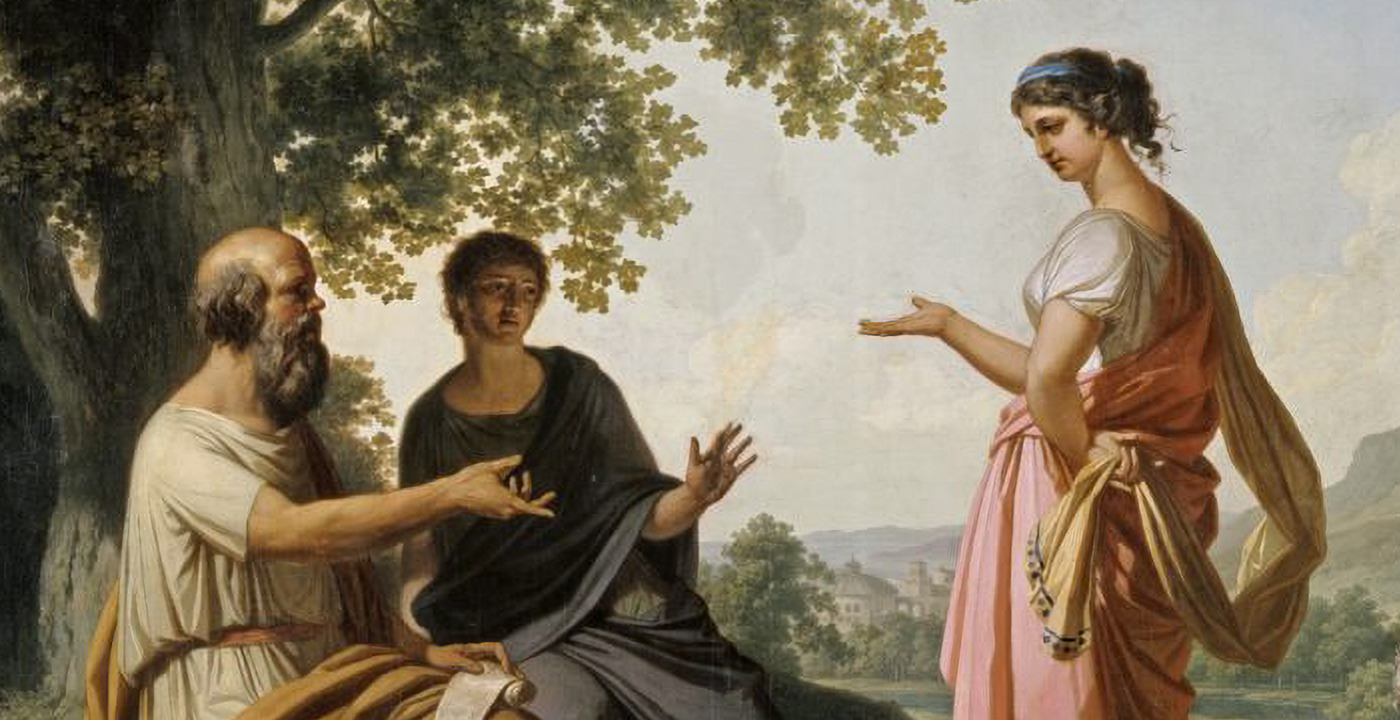
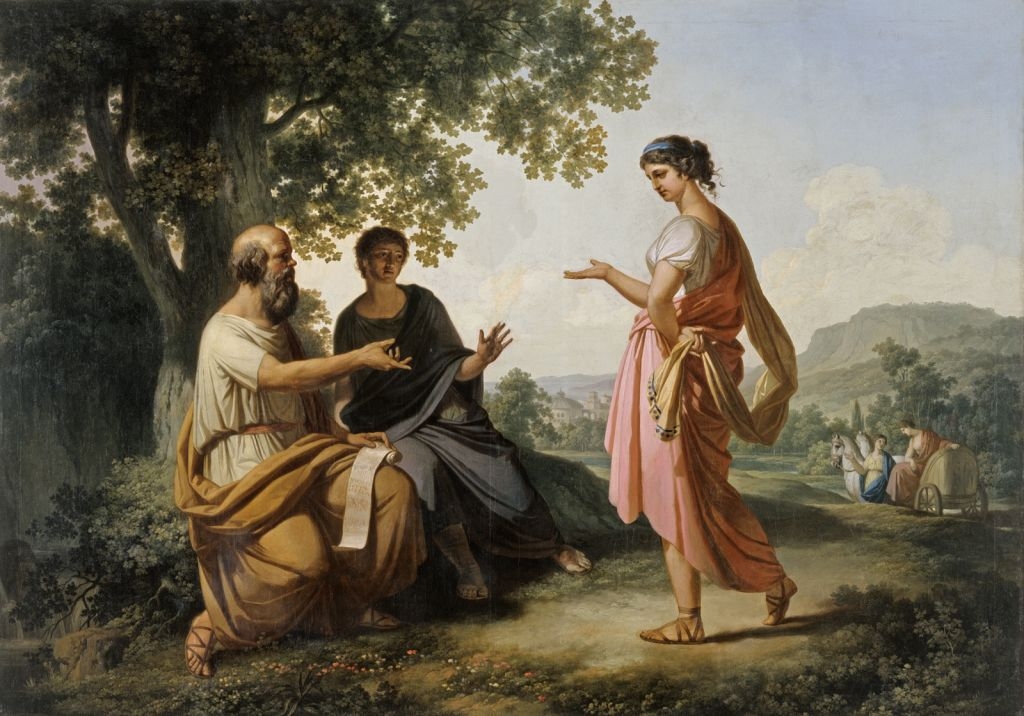
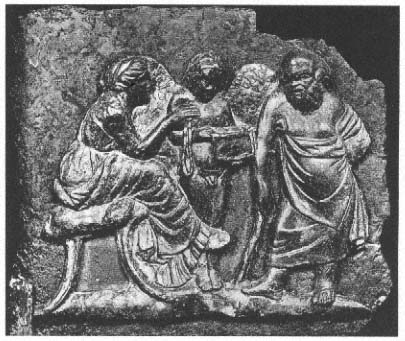
Comment
Your message was sent successfully